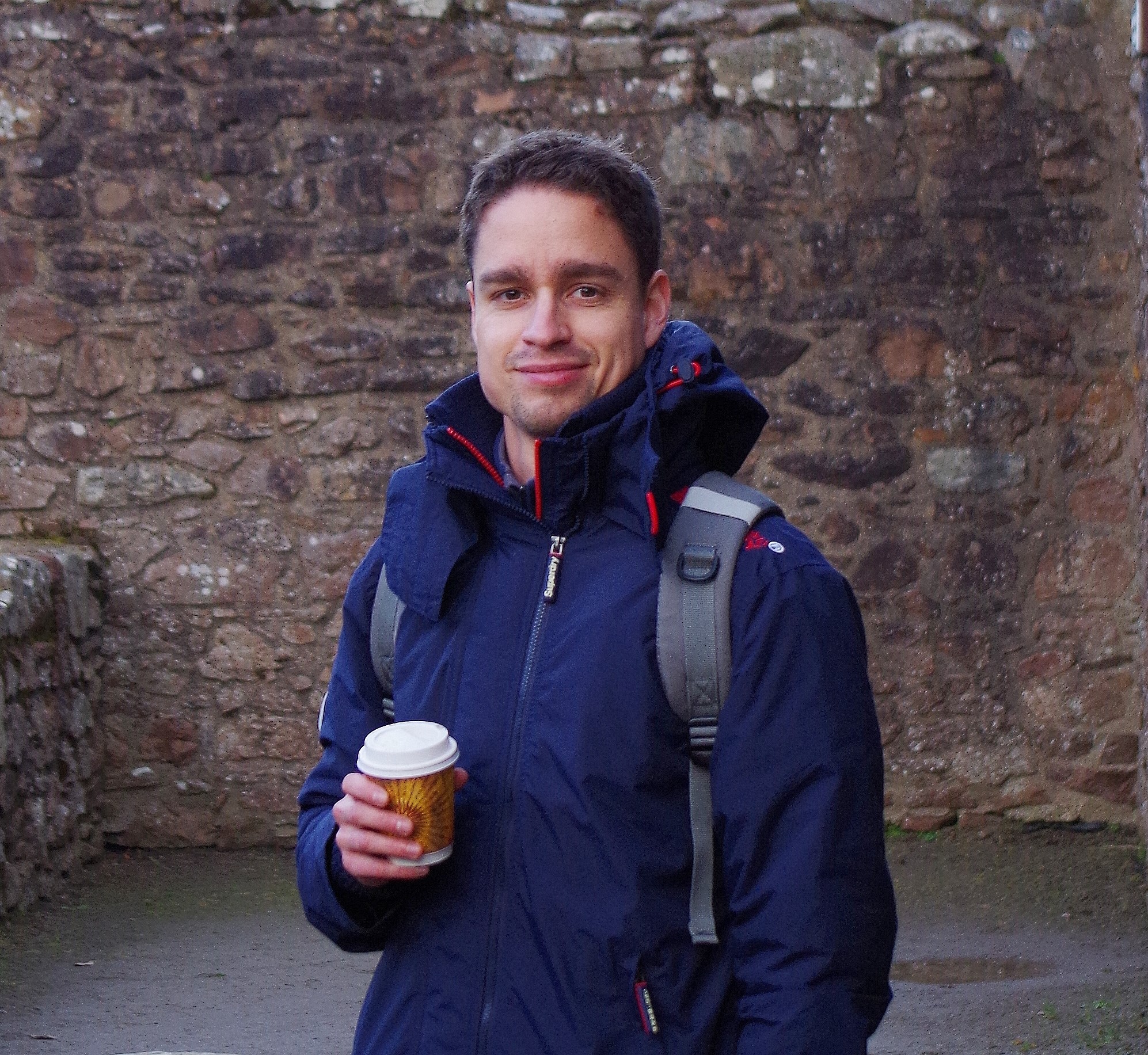Scholar Biography
Manuel-Thomas Valdivia
Nanomaterials and photonic solutions: Novel ‘at source’ approaches to stop hospital-derived priority substances reaching the sewer network

“Hospital patients release toxic drugs into wastewater via their urine and faeces. I have made a low-cost solution that uses light and a nanomaterial surface to clean the flowing wastewater of all hospital drugs.”
Manuel-Thomas is a Hydro Nation PhD scholar registered at the University of the Highlands and Islands and is based in the Division for Biomedical Sciences (Centre for Health Sciences), Inverness. He is collaborating for his research with the Environmental Research Institute at the same Institution, together with multiple stakeholders, including Scottish Water, Highlands and Islands Enterprise and the Scottish Environmental Protection Agency. Manuel has further set-up a commercial contact with PolyCatUK Ltd, having completed a feasibility pilot study for the University’s Water Quality Innovation Group.
Manuel’s PhD programme will focus on understanding the nature and extent of the emerging problem of pharmaceuticals in wastewater prior to developing novel at-source solutions to eliminate the risk, particularly with respect to healthcare facilities (e.g. at hospitals). He will explore the potential of novel photocatalytic nanoporous materials and photonic solutions to eliminate pharmaceuticals and their metabolites. Such ‘at source’-approaches are becoming increasingly prominent because commercial wastewater treatment plants are not equipped to target and eliminate pharmaceuticals efficiently. Ecotoxic accumulation of priority substances in surface water has been an acute concern in recent years and this project is characterising further the acute impact of pharmaceutical pollution on human health and how to prevent accumulation of potentially toxic compounds.
Manuel obtained a chemical engineering degree from Ostfalia University of Applied Sciences in Germany. He developed an early interest in water quality research, and he was awarded a first-class mark for his dissertation in the characterisation and quantitative evaluation of bioremediation with microalgae to clean surface water from heavy-metal polluted effluents.
After moving to Scotland in 2014, he worked for 2 years as a Scientist for Scottish Water to conduct accredited quality analysis of drinking water.
In early 2017 he was appointed by the Division for Biomedical Sciences as Research Technician, during which time he contributed to projects and publications and worked independently on various funded research projects in a range of diseases within the Free Radical and Lipidomics Research Groups, utilising diverse HPLC-MS techniques, biochemical assays and method developments for a range of applications, including pharmaceutical compound analysis.
Knowledge Exchange Outputs
- Pilot Study: Assessment of Polymer Filters for Rx Removal from Aqueous Effluents
- Catalyst-free Click PEGylation reveals substantial mitochondrial ATP synthase sub-unit alpha oxidation before and after fertilisation
- HNS Welcome Event Presentation - Nanomaterials and Photonic solutions: Novel 'at source' approaches to stop hospital derived priority substances reaching the sewer network
- SFG Poster 2021 - Nanomaterials and photonic solutions: Novel ‘at source’ approaches to stop hospital-derived priority substances reaching the sewer network
- Nanomaterials and photonic solutions. Novel ‘at source’ approaches to stop hospital derived pharmaceuticals reaching the sewer network (Presentation) -April 2021
- Nanomaterials and photonic solutions. Novel ‘at source’ approaches to stop hospital derived pharmaceuticals reaching the sewer network (Presentation)- October 2021
- Nanomaterials and photonic solutions. Novel ‘at source’ approaches -HNSP Welcome Event 2021 (Poster)
- Photocatalytic metallic nanomaterials immobilised onto porous structures: Future perspectives for at-source pharmaceutical removal from hospital wastewater and potential benefits over existing technologies (Paper)
- At-source hospital wastewater treatment to eliminate harmful pharmaceuticals: A novel approach using UV-LED activated nanomaterials -HNSP welcome event 2022/EMEC22-Slovenia (Poster)
- At-source hospital wastewater treatment to eliminate harmful pharmaceuticals: A novel approach using UV-LED activated nanomaterials (Presentation)
- At-source hospital wastewater treatment to eliminate harmful pharmaceuticals: A novel approach using UV-LED activated nanomaterials (Poster)
- At-source hospital wastewater treatment to eliminate harmful pharmaceuticals: A novel approach using UV-LED activated nanomaterials (Poster)